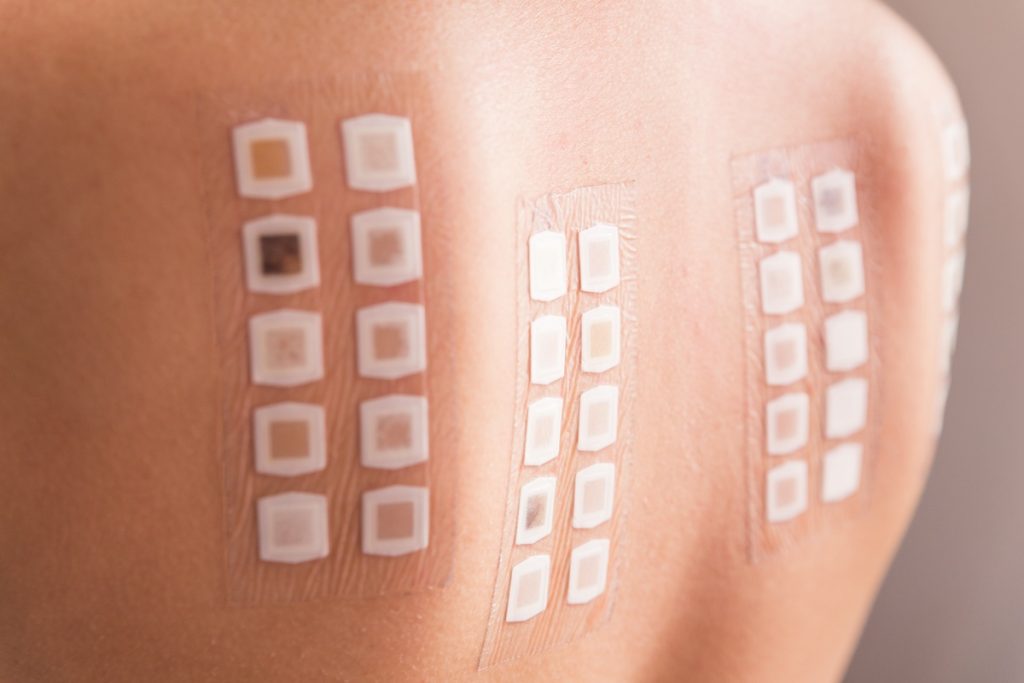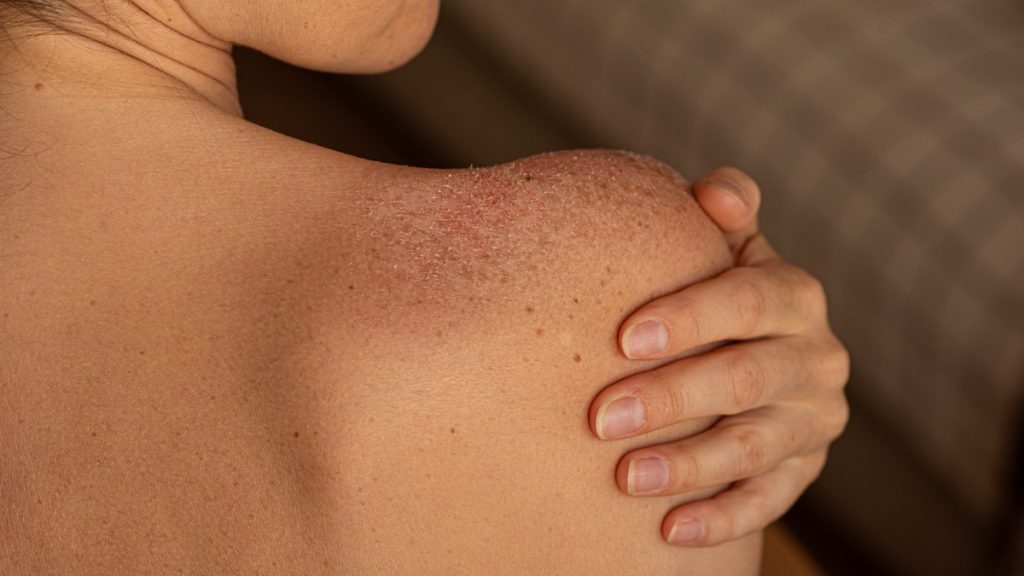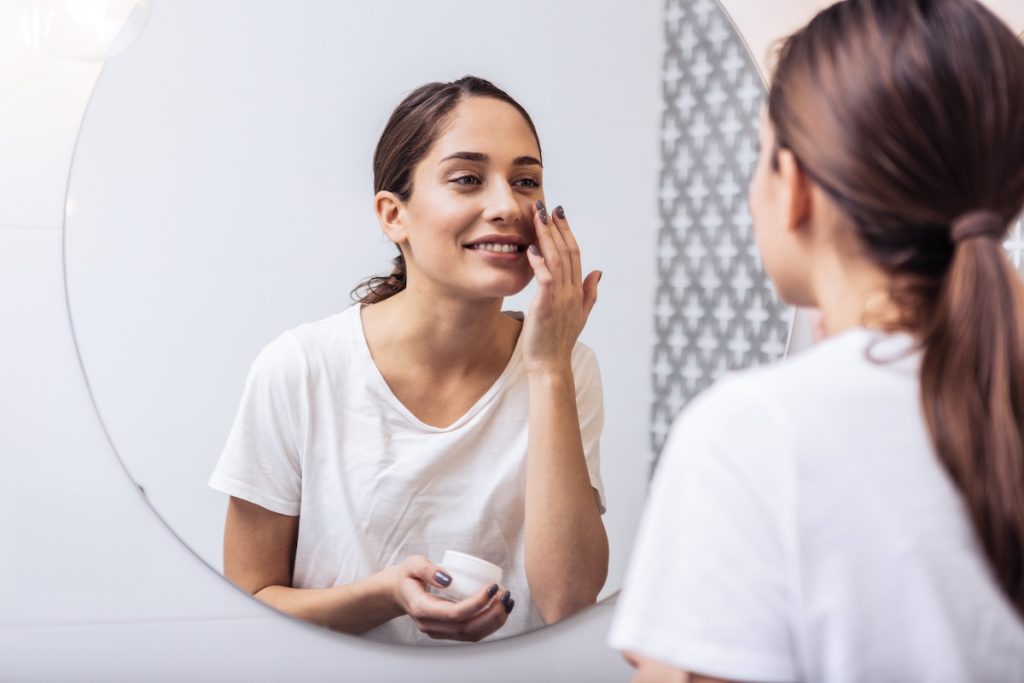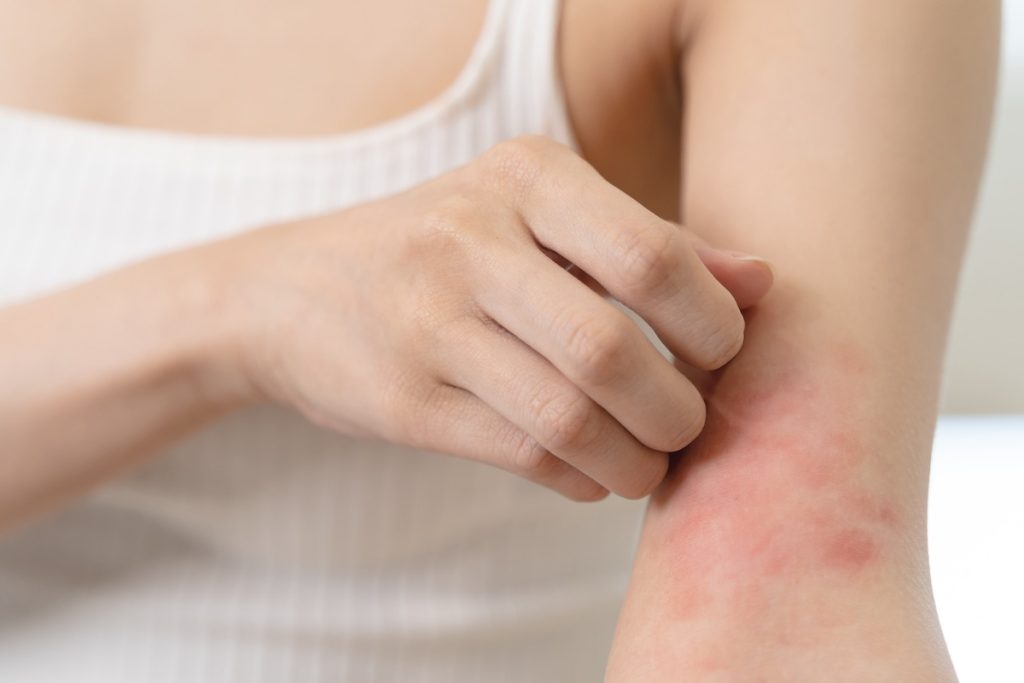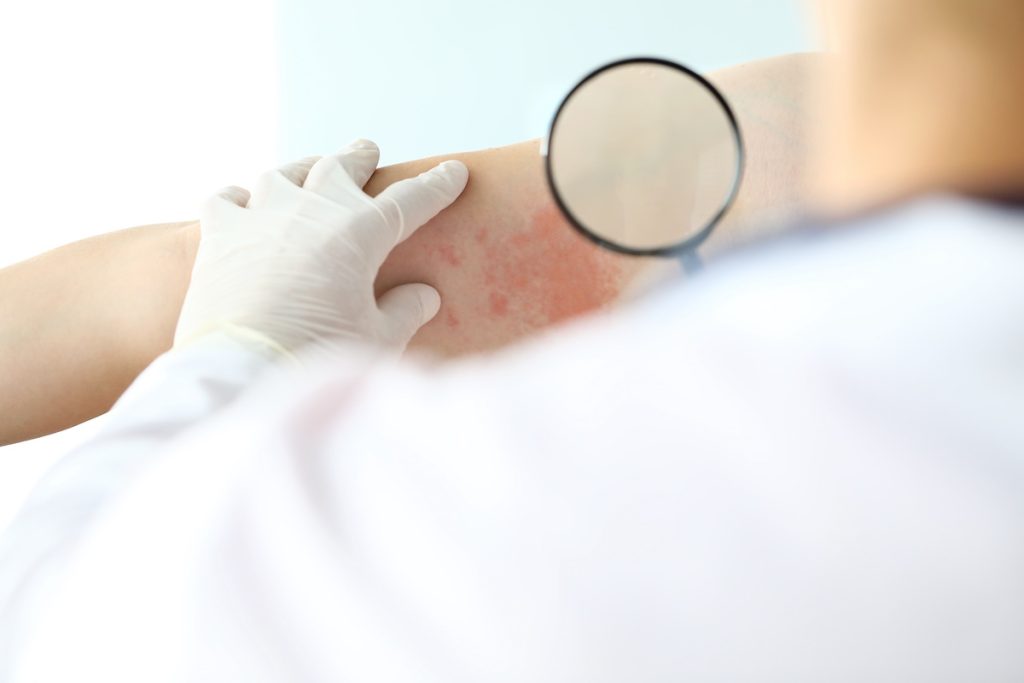Medical Dermatology
Contact Dermatitis: What It Is and How Patch Testing Can Help
Itchy, red, flaky skin that just won’t go away? If you’ve experienced ongoing irritation from skincare products, jewelry, or even your laundry detergent, contact dermatitis may be the culprit. This common skin condition is caused by exposure to substances that trigger an allergic or irritant reaction. While over-the-counter creams may offer temporary relief, the real…
Read MoreTelogen Effluvium vs Androgenetic Alopecia: How to Tell the Difference
Hair loss can be distressing, especially when it happens unexpectedly or progresses over time. While it’s easy to assume all hair shedding is the same, there are actually many types of hair loss, each with its own causes, progression, and treatment. Two of the most common are telogen effluvium and androgenetic alopecia. Though they may…
Read MoreThe pH Puzzle: How Skin Acidity Impacts Atopic Dermatitis
The skin is a brilliant organ. It’s always working, always protecting. But for people living with atopic dermatitis, that protective barrier doesn’t always function the way it should. Behind the itching, dryness, and inflammation lies a surprisingly important factor: skin pH. Though it doesn’t always get the attention it deserves, skin pH plays a key…
Read MoreHeat Rash 101: Here’s How to Keep It Cool
Warm weather can bring plenty of fun—but it also brings sweat, friction, and skin irritation. One common result? Heat rash. Also called prickly heat or miliaria, this condition happens when sweat gets trapped beneath the skin’s surface, leading to bumps, redness, and discomfort. At Dermatology Associates of Plymouth Meeting, we often see heat rash during…
Read MoreSunscreen Isn’t One-Size-Fits-All
Sun protection is for everyone—but how you protect your skin can vary widely from one family member to the next. Babies have delicate skin that calls for extra caution, kids need formulas that keep up with playtime, and teens may be navigating both acne and athletics. Adults often want something that blends effortlessly into a…
Read MoreSummer Skincare Starts with Expert Guidance
When the seasons change, your skincare routine should shift with it—especially as we head into the warmer, sunnier months. From increased sun exposure to more time spent outdoors, summer presents new challenges for your skin’s health and appearance. At Dermatology Associates of Plymouth Meeting, we believe preventive care and personalized attention go hand in hand…
Read MoreSay Goodbye to Winter Dryness: Simple Tweaks for Soft, Hydrated Skin
Winter is in full swing and we’re all battling battle against dry, flaky skin. The crisp air, blustery winds and moisture-zapping indoor heat can leave your skin feeling tight, irritated and anything but comfortable. But don’t worry—keeping your skin soft and hydrated doesn’t require an overhaul of your routine. With a few simple tweaks, you…
Read MoreRecovering from a Virus? Here’s Why a Rash Might Appear
Just when you think you’re in the clear after a viral illness, an unexpected rash appears—red, blotchy, and impossible to ignore. Post-viral rashes are your body’s way of wrapping up the fight against infection, often surfacing as the immune system settles down. While many are harmless and fade on their own, some can be itchy,…
Read MoreWhat is Shingles?
Shingles, also known as herpes zoster, is a painful skin condition caused by the varicella-zoster virus. This virus remains in the body after a chickenpox infection, reactivating later in life for some individuals. Shingles can lead to intense discomfort and, in some cases, complications such as long-term nerve pain. Dermatology Associates of Plymouth Meeting offers…
Read MoreThe Vitamin Blueprint to Radiant Skin
A vibrant, healthy complexion is more than skin-deep; it starts with nutrients that nourish your skin from the inside out. Vitamins play a crucial role in maintaining skin health by supporting cellular repair, protecting against environmental damage and boosting skin’s natural glow. While many people focus on topical treatments, incorporating vitamins into your skincare routine…
Read More
